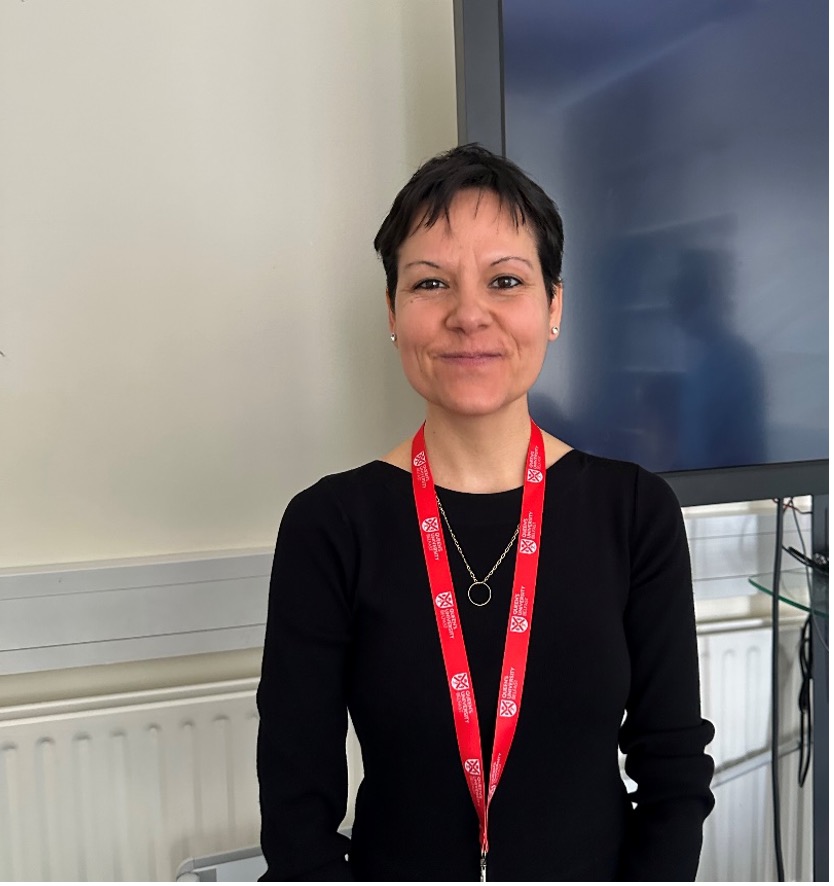This post is part of our Research Initiation Scheme for 2023-2024.

On Wednesday 17th of April 2024, Dr María D. Martos Pérez (UNED, Madrid-Bieses) delivered a seminar on the topic of “Travel Experiences and Illness in Early Modern Female Religious Communities”, based on her research into female religious pilgrimages from Spain during the 16th and 17th centuries. Her research for this seminar focused on recovering female authors. She considered themes of female authorship and the history of female participation in the production of literary works.
Dr Martos Pérez began the seminar by explaining how she used women’s writing about their travel experiences to further understand the Early Modern female experience. The majority of the texts she examined were written by nuns travelling from the Iberian Peninsula to establish new convents in Spanish colonies. Their writings took the form of biographies, autobiographies or letters. The aim of this research was to compare the nuns’ individual experiences, investigate what these texts emphasise about the travelling conditions, study descriptions of the illnesses that the nuns’ endured while travelling, and consider how their suffering was transmitted through discursive rhetoric in the texts. She noted that the majority of female written manuscripts were addressed to the members of their religious community for informative purposes, while male-written texts were more often used as propaganda.
Dr Martos Pérez outlined three main purposes of the travel narratives: they acted as points of reference for the other nuns, established the social role of religious women, and depicted a model for women’s writing. The manuscripts provide subjective accounts from the nuns, and give authority and legitimacy to their experiences, therefore legitimising women in public and scholarly roles.
The bulk of the seminar consisted of a recounting of various travel accounts of the nuns, mainly focusing on Sor Jerónima de la Asunción and her group, which undertook an arduous journey from Toledo in Spain to Manila in the Philippines. Also mentioned were various groups of Capuchin nuns; one group who travelled from Toledo to Mexico City in 1665, and another group that left for Lima from Madrid in 1710. These groups of women suffered not only from rough travelling conditions, but also illnesses during the transoceanic voyages. They also had difficulty settling into the countries where they went to live, struggling to adjust to their new environments. Dr Martos Pérez proposed that the texts suggest that the nuns used their suffering during travel as a way to connect with divinity, as the nature of their illness tends to be highlighted within the narratives. Their suffering and subsequent survival became a legitimisation of their faith, which served as a justification for their voyages.
The seminar was followed by a lively discussion of Dr Martos Pérez’s findings, with some thought-provoking follow-up questions. Some topics included how the female medical treaties could be compared with medical science of the time, and how the nuns’ healthcare knowledge was influenced by spiritual treaties. Overall, the seminar was very engaging and introduced a unique and intriguing historical perspective, which could provide context or inspiration for a wide range of research topics.
Report by Cara Reid, final-year undergraduate in English and Spanish
Editor’s note:
Dr Martos Pérez has spent the 2023-2024 academic year as a Visiting Scholar in the School of Arts, English and Languages through a “Requalification of University Teaching Staff” Scholarship, granted by the Ministry for Universities (Spain) and financed by the European Union and the Next Generation Fund, 2022 call. At QUB, she has been working with Professor Isabel Torres and Dr Anne Holloway.